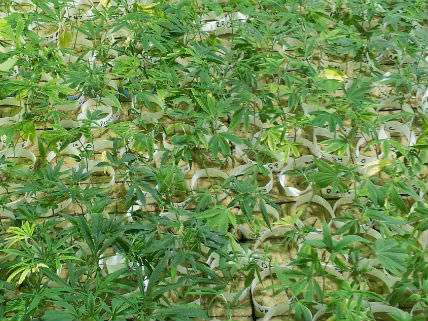3 More Jurisdictions That Could Legalize Marijuana This Year

In my latest Forbes column, I compare marijuana legalization in Colorado and Washington with the policies embodied in three initiatives on the ballot this year. Here is how the piece begins:
This week a marijuana legalization initiative officially qualified for the ballot in Oregon. Voters will also consider legalization measures in Alaska and (probably) the District of Columbia this fall, so by the end of the year three more jurisdictions could join Colorado and Washington in allowing recreational use of cannabis. The differences among the five measures illustrate the advantages of federalism, which allows policy experiments that will help chart the course to the end of marijuana prohibition in America.
Editor's Note: As of February 29, 2024, commenting privileges on reason.com posts are limited to Reason Plus subscribers. Past commenters are grandfathered in for a temporary period. Subscribe here to preserve your ability to comment. Your Reason Plus subscription also gives you an ad-free version of reason.com, along with full access to the digital edition and archives of Reason magazine. We request that comments be civil and on-topic. We do not moderate or assume any responsibility for comments, which are owned by the readers who post them. Comments do not represent the views of reason.com or Reason Foundation. We reserve the right to delete any comment and ban commenters for any reason at any time. Comments may only be edited within 5 minutes of posting. Report abuses.
Please to post comments


I'm glad a state that doesn't have a large hippie population is finally considering legalization. We need more red states to get on this trend. With any luck some pols will see this and start limiting government in other areas as well.
Well, not all red state pols can be as pro-pot as Pat Robertson.
Appalatia should jump on this, their climate is perfect for growing both hemp and Marijuana products. Plus the current strife of actual poverty could be alleviated by giving the people a product they could produce on even relatively modest scale for supplemental (or primary) income.